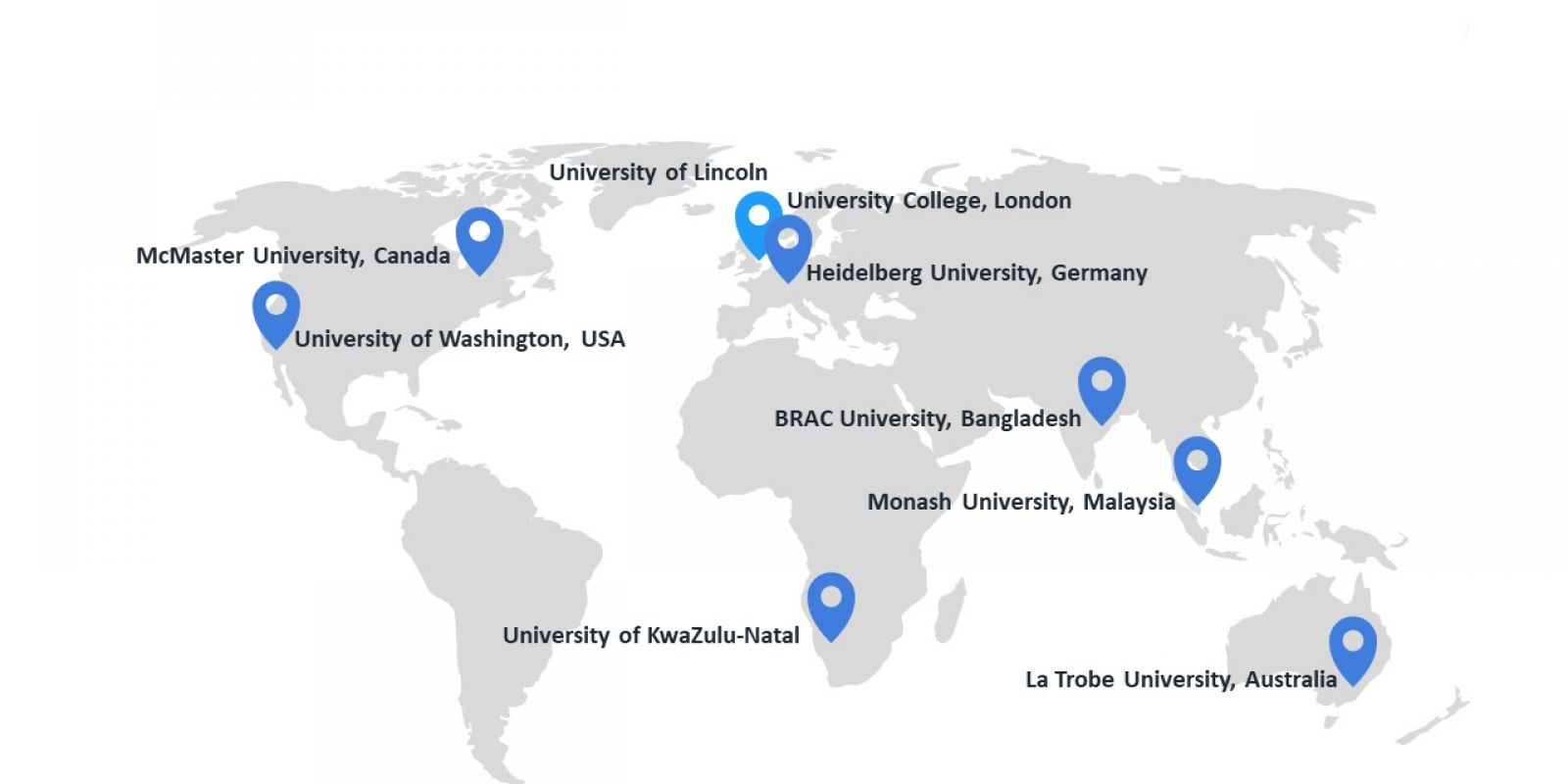The Lincoln International Institute for Rural Health (LIIRH) is a bold initiative with ambitions to become the pre-eminent rural health institution worldwide, addressing the unique health issues facing rural communities and reversing their negative impact on education, inequality, and economic growth. Professor Frank Tanser is Global Professor of Rural Health and Care at the University of Lincoln and a member of the Greater Lincolnshire Health and Care Board, and he joins us to talk about this project.
The institute’s mission is to conduct world-class research addressing the unique health issues facing rural communities locally, nationally and internationally, and it fosters collaborative partnerships across academic, commercial and healthcare sectors to support research, development and innovation.
International partners include South Africa, Australia, Germany, Canada, USA, Tanzania, Burkina Faso, and India, supported locally by the Greater Lincolnshire LEP and through close working with the National Centre for Rural Health and Care, which is also headquartered in Lincolnshire. By leveraging links to expert teams in universities and research centres, the institute’s researchers and collaborators can enable comparative learning with applications to a variety of countries and contexts.
The connections between health inequality and its impact on economic prosperity have long been widely known. The LIIRH brings together world-leading specialists conducting research across a range of rural health related concerns, ranging from infectious disease epidemiology, oral health, and emergent response analysis through to sustainable remote health care delivery solutions, meta-governance approaches and m-health technological innovation, to address this head on in a global collaboration.
Working in partnership across this powerful network and acting as the core research engine of the new Lincoln Medical School, the institute is launching an ambitious research strategy that focuses on developing and testing appropriate and practical interventions to improve the lives and economic prospects of people living in rural communities. Focused on three core areas, the institute’s research portfolio is developing studies investigating cross-cutting themes and approaches to inquiry and community engagement by developing innovative research methods supported by the emergence of big data, digital technologies and healthcare informatics which are helping to overcome major barriers that were previously insurmountable.
Rural populations have a higher chance of developing chronic diseases and preventable conditions (obesity, ischemic heart disease, COPD, diabetes, cancer and injury) as well as unhealthier risky behaviours (substance abuse, smoking) compared to urban populations, and they face challenges accessing care. Covid-19 has further highlighted the vulnerability of these communities during a global pandemic.
Sustainable development goals (SDGs), which are an urgent call for action by all countries, recognise that ending poverty and other deprivations must go hand in hand with strategies to improve health and education, reduce inequality, and spur economic growth. Located in the heart of the UK’s second largest rural county, LIIRH is uniquely placed to address this and to serve as a fulcrum for rural health research and investigate issues of global importance. The institute will be central to new efforts to better understand and intervene in the health and care concerns of remote communities, and alongside the new Lincoln Medical School it is strategically placed to conduct excellence in rural health research, supporting local development and investment in medical education and commercial supply chains, and fundamentally addressing the challenges of healthcare organisations serving an under-resourced region.
The ability to recruit and retain a sustainable, skilled workforce to address these inequalities and facilitate access to community-relevant care in remote regions is dependent upon evidence-based operational research and analysis. Understanding the infrastructure needs and capacity challenges for healthcare is also key to developing sustainable medical models, supporting remote and regionally diverse or disadvantaged populations.
As a centre of excellence in rural health research, the institute sets out to conduct high-quality innovative and sustainable global research and to address disparities in service provision to dispersed and remote populations. The immediate priority of the LIIRH institute’s research is therefore to contribute to reducing inequities and to improve access to quality health care services specific to Lincolnshire. The institute’s strategic goals will address knowledge and data gaps relating to disease demographics, epidemiology, inadequacies in rural health services and trained healthcare professionals across regional, national, and international contexts to build and design sustainable rural healthcare models for the future.
Prof Frank Tanser
The Greater Lincolnshire LEP's ambition is to develop new efficient and innovative models of care for a dispersed and ageing population, building a cluster of local businesses to support active ageing.
The establishment of the National Centre for Rural Health and Care (NCRHC) in Greater Lincolnshire brings national expertise in rural health and care to the area. The NCRHC is an independent body with links to the University of Lincoln and the Lincoln International Institute for Rural Health. The centre is currently hosted within Bishop Grosseteste University in Lincoln with which it has a research partnership. It has approaching 70 trusts in membership across England and provides the secretariat for a Parliamentary Inquiry into Rural Health and Care. The NCRHC has identified Lincolnshire as a ‘vanguard county’ as a place to explore innovation. Through its relationship with East Midlands Academic Health and Science Network it is planning a programme of innovation engagement, building on the Innovation Exchange of December 2018, which will extend the opportunities for business growth and development of the estimated 2,500 health and care businesses based in Greater Lincolnshire.


